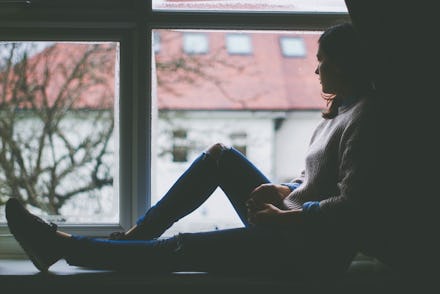Losing Someone You Love Can Literally Break Your Heart

It turns out that being brokenhearted after the death of a loved one isn't just a euphemism — it's possible that the loss of a partner may actually trigger an irregular heartbeat, according to a new study, especially when the loss is sudden.
"People are more likely to develop an irregular heartbeat following the death of their spouse or life partner, particularly if they're younger or the loved one died unexpectedly," reported HealthDay on Wednesday, citing a study conducted by Danish researchers and published Tuesday in the journal Open Heart.
The study found that the risk of atrial fibrillation, a kind of heart arrhythmia, was 41 percent higher among people whose partners had died compared to those who hadn't experienced the death of a partner, HealthDay reported, and an unexpected death seems to play an even greater role in that risk.
"In addition, those whose partners were relatively healthy in the month before they died were 57 percent more likely to develop atrial fibrillation," HealthDay reported, and "People younger than 60 were more than twice as likely to develop atrial fibrillation if they lost their partner."
This isn't the first study that suggests a connection between emotional well-being and heart health. According to the American Heart Association, "Broken heart syndrome, also called stress-induced cardiomyopathy or takotsubo cardiomyopathy" can be related to an "emotionally stressful event" like "the death of a loved one or even a divorce, breakup or physical separation, betrayal or romantic rejection."
"We use that phrase 'broken heart' as though it's a colloquialism, but there's a reality to it," Dr. Suzanne Steinbaum, director of Women's Heart Health at Lenox Hill Hospital in New York City, told HealthDay. "The most important thing is having a support system, especially in the event of a sudden, unexpected death. It's so important that people get the support they need."
Read: Here's Why You Should Sleep Naked, According to Science